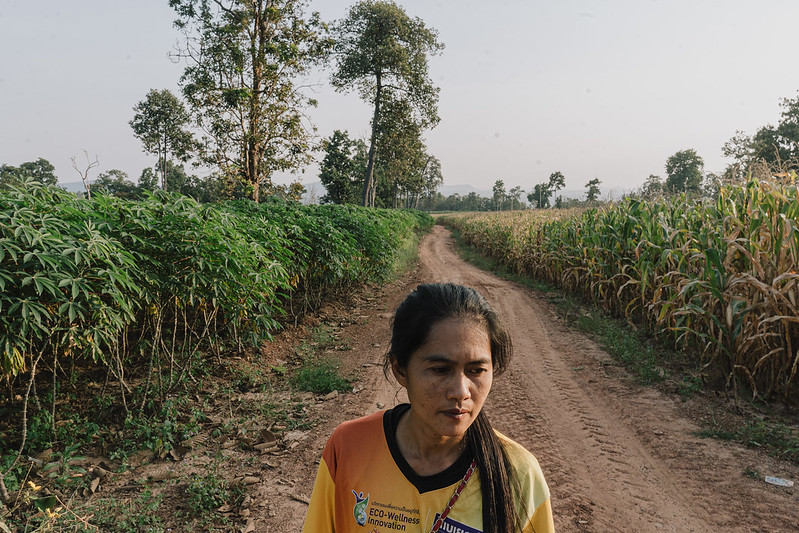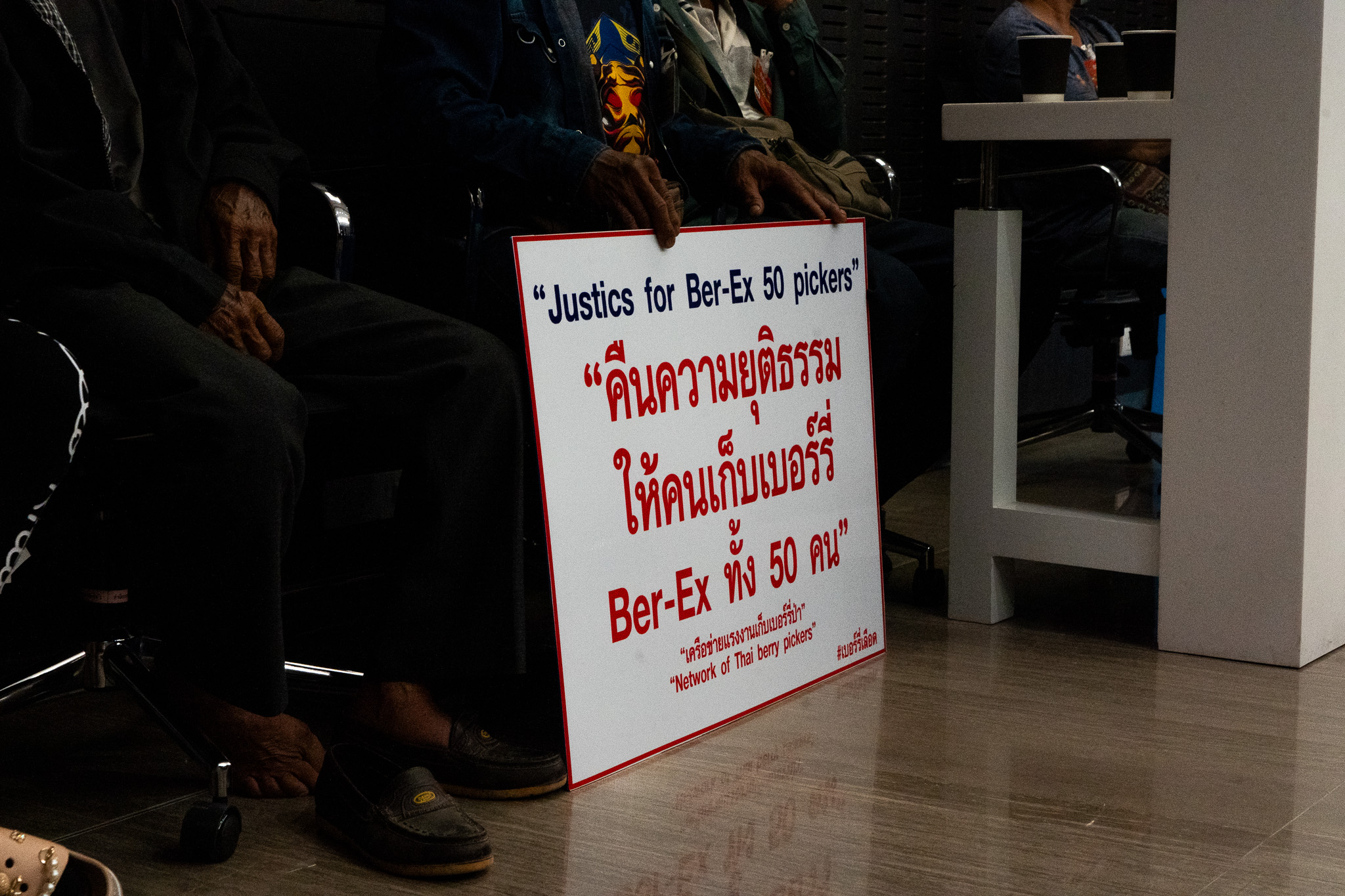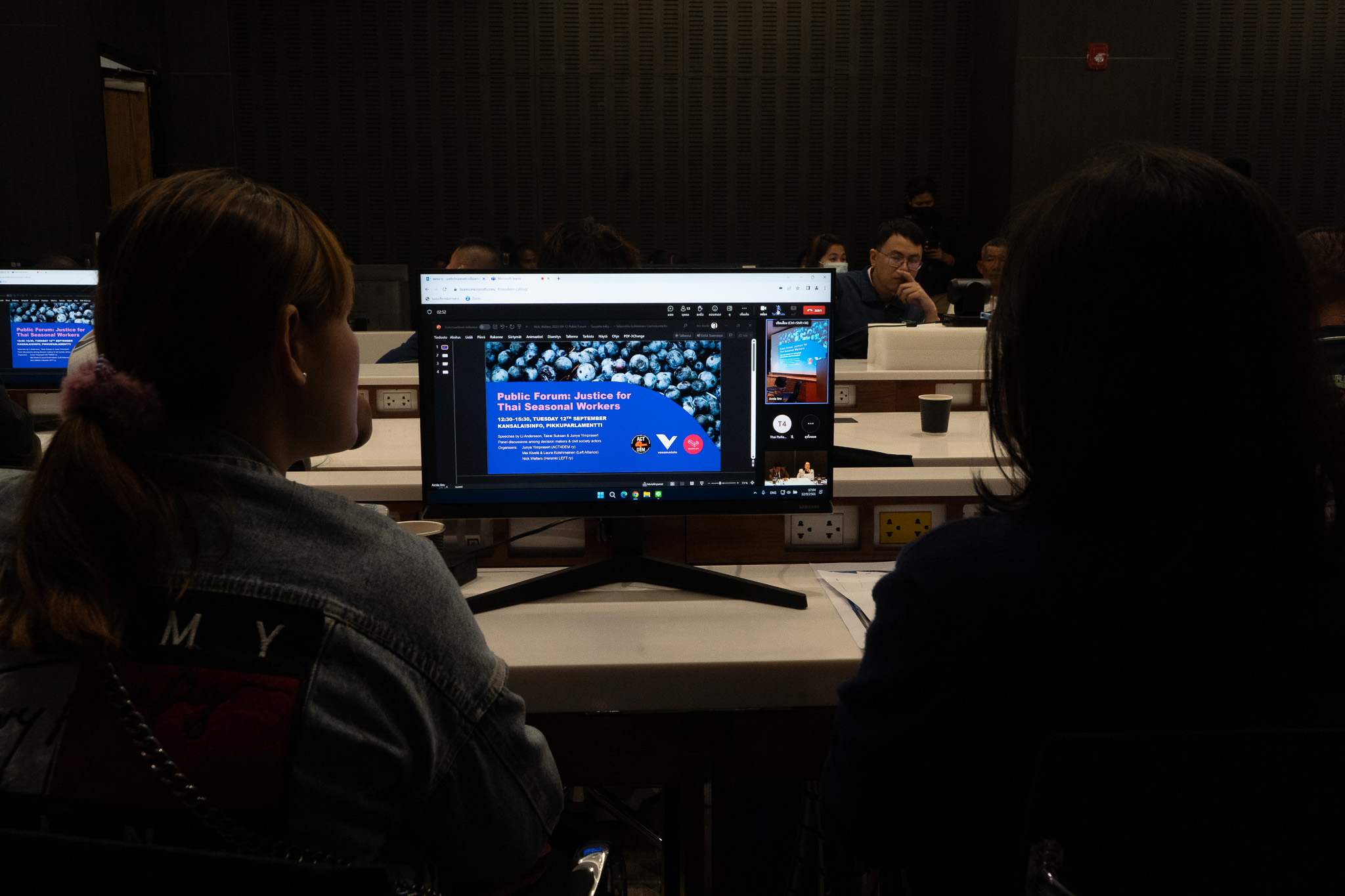By Hathairat Phaholtap – Special report for The Isaan Record
KHON KAEN — During a hot day this month, just a week before the country’s election day, Kangwan Yotika, a 55-year-old farmer in Ubolratana District in Khon Kaen, stood at the edge of his sugar cane field that he had burned.
“I had to burn it all because the sugar cane price is pretty low. It is about 500 baht per ton. If I hire workers to cut the sugar cane fresh, I will make a loss,” Mr. Kangwan said, explaining a problem many farmers are facing in the region.
Although smiling while he talked, his eyes were sad. “I’m left with no choice but to burn the whole lot and be done with it. After that, I’ll plow the land up,” he said.
“The military government doesn’t listen to us, we can’t go to them with our problems,” Mr. Kangwan said. “We can only hope for an elected government, one that we voted for, to help solve our problems.”

Kangwan Yotika, 55, a farmer in Ubolratana District in Khon Kaen, hopes that his life will improve after the election.
In 2010, when Kangwan worked as a security guard for a private company in Bangkok, he joined the protests of the Red Shirt movement. When the military cracked down on the demonstrators on May 19, he was at the protest site with his bicycle.
“I very nearly didn’t make it out of there. It was chaos, but I was able to escape. I saw them with my own eyes, taking aim at us, shooting at me and my friends. Shots struck my bicycle,” he recalled with anger in his voice.
The Isaan Record asked him, “Will you be able to accept it if the military government returns to power after the election?”
He thought silently for about ten seconds and replied, “I will be disappointed if that happens [but] I will accept it and be patient until an elected government can return and resolve our problems.”
Sharing Kangwan’s hopes for the election is Jamrat Loomma, the president of the Chiangmai-Lamphun Farmers Association.
“Since the junta took over the country, I have never seen them address our problems,” Mr. Jamrat said. “When Yingluck’s government ran the country, they did pretty well. With the rice pledging scheme I got really close to paying off the bank loan for my tractor.”
“Nowadays,” he went on, “the rice price is low– only 6,000 baht per ton, which is half the price [we got] compared to Yingluck government. The problems I have been facing forced me to sell some of my land to service my debt.”
He and his neighbors did try to muster a protest over the low agricultural prices four years ago, but the group was blocked from going ahead with the protest by the military. From then on, the group’s members constantly received visits by military personnel to check on their movements.

Jamrat Loomma, president of the Chiangmai-Lamphun Farmers Association, struggles to make a living since the coup in 2014.
Since the coup on May 22, 2014, many farmer and red shirt groups in the North and Northeast have been monitored closely by the authorities.
Many were taken to “attitude adjustment” sessions, and some were detained on army bases for more than 30 days. Others were required to report to the military weekly for over 3 years.
Pichit Tamoon, known as “Daab Chit” or “[Police] Sergeant Major Chit,” a Chiang Mai red shirt leader, told The Isaan Record that he was subjected to attitude adjustment four times from 2014 to 2017. The first time soldiers took him to the Khun-Nen base of the 5th Special Forces Regiment in Chiang Mai for seven days. After that he was taken to several army bases on three other occasions.
“In every attitude adjustment, they always told me to stop my activism, stop political gatherings of five or more persons, and stop meeting with other red shirts,” Daab Chit said. “But we can’t do that because we have issues that need to be dealt with, and we need to talk to each other. The group has become smaller since then.”
“I hope that after the election we will be able to gather again because there so many local economic problems that need to be solved,” he said. “I hope that the election will bring back democracy very soon!”
Under military rule, farmer and red shirt activists in both the North and the Northeast were effectively silenced. But local red shirt leaders hope to revive their movement after the election.

Anon Saen-nan, a leader of the Red Village Assembly for Democracy of Thailand, hopes to extend the movement after the election.
In a village in Khon Kaen’s Ubolratana District, a coordination center established in the name of the Red Village movement to solve farmers’ problems had to rebrand itself after the coup in 2014.
First, the center changed its name to “Village for Democracy,” and members shifted their communication to online channels to discuss livelihood problems and exchange tips for commercial mushroom cultivation.
Later on, they renamed their community as the “Mushroom Village” because mushroom growing turned out to be more successful than other occupations.
“Over 29,000 Red Shirt Villages nationwide have changed their names to Mushroom Villages. Most of them are in the Northeast and the North. There are nine in the south,” said Anon Saen-nan, a leader of the Red Village Assembly for Democracy of Thailand.
“They hope that after the election, the network will be extended to cover all provinces and hope that democracy will come back,” he said.






